An Indonesian Idol
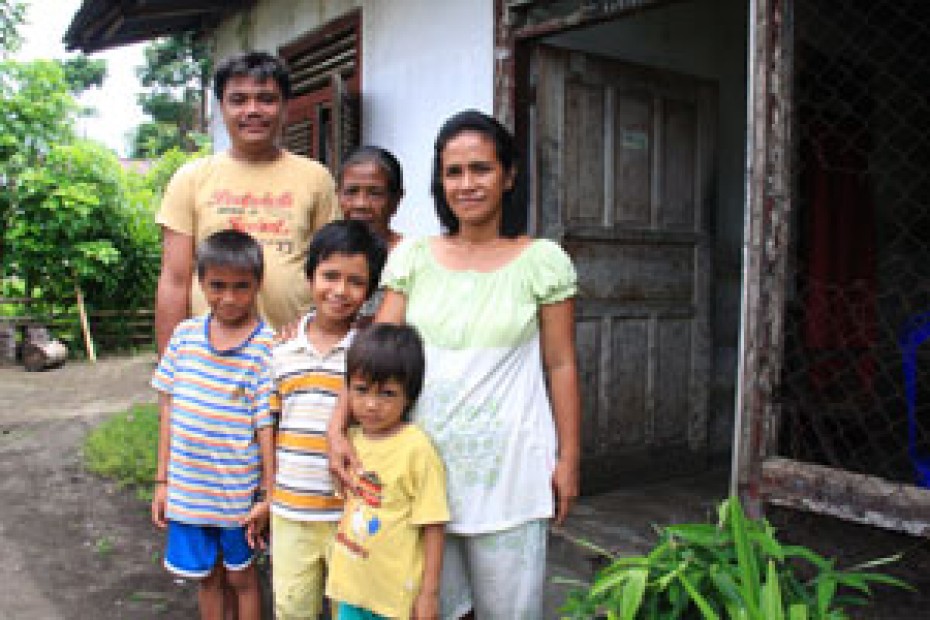
Knowing Nyopon’s dream to become a singer, Mustika, one of the staff members at the child development center, offered him the opportunity to join the “Idola Cilik” contest. Idola Cilik is a national children’s singing contest inspired by “American Idol.”
Continue Reading ›How Valuable Is a Little Encouragement in a Person’s Life?
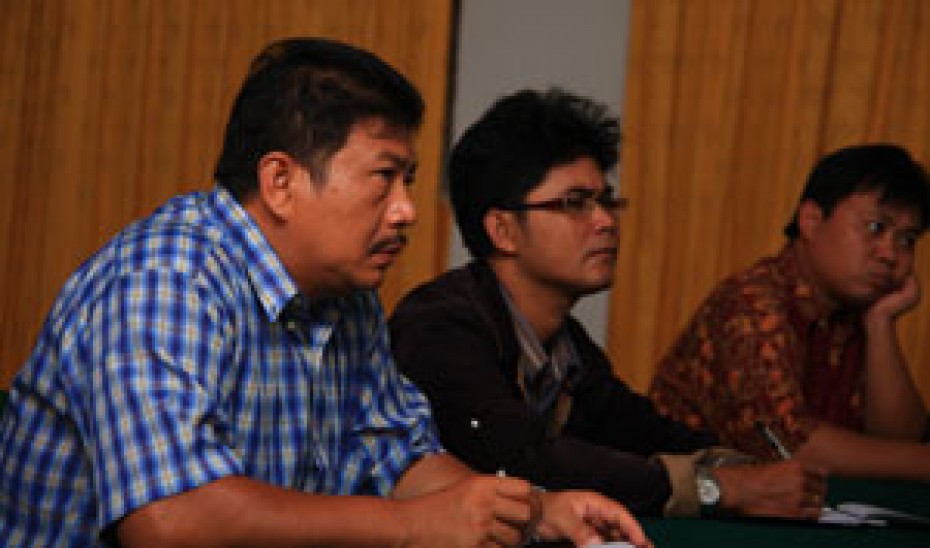
Now a successful man who owns a large egg-selling business, Wolly Towoliu was once known as a little boy who had a very bad attitude. Wolly liked to hit his friends, sometimes even with stones. His mother once even said, “It would be better if you just went to the forest. I can’t stand any more of your attitude.”
Continue Reading ›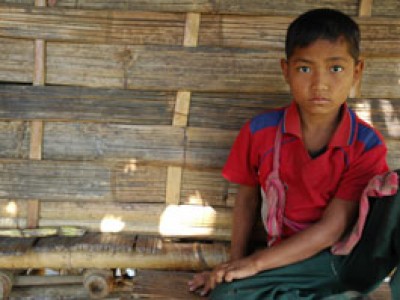
Life as a Refugee in Thailand
Suppakit and his family part of the Karen ethnic group and are refugees who have limited rights in Thailand. Read more about their experience.
Assisting Refugees in Thailand With International Justice Mission
With an internal war in Myanmar tearing at the country for more than 50 years, refugees have been pouring into northern Thailand, seeking some way to survive. In response to this need, Compassion and International Justice Mission have partnered to help support the refugees as they begin a new life.

Charles in Charge: By Design of the Master
Both of Charles’ parents labored hard in the rice paddies all day long but brought home little money. When Charles mother got sick, they did not have money to take her to the hospital.
Charles never found out why she was sick. She just grew weaker by the day, until finally she died. He still wonders if the disease his mother succumbed to was curable.
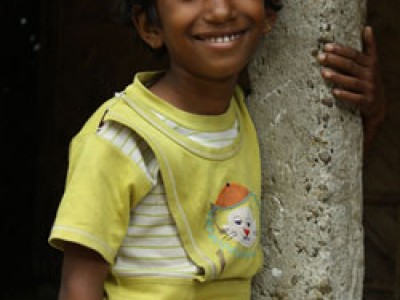
An Intervention on Beauty’s Behalf
Beauty lost her older sister, Ratna, of tuberculosis in 2008. Ratna’s sudden death left everyone in the family emotionally broken and disintegrated.
In the midst of their grief, the whole family had to undergo a series of medical tests for their safety. The test results uncovered a shocking fact; Beauty tested positive and was in the first stage of tuberculosis.
What Impact Does Access to Clean Water Have on a Community?
No one would think people who live in an area rich in natural resources would have a problem getting water. But for many years, struggling to find fresh water was a way of life in Meagama Village in Papua, Indonesia’s largest province.
Longstanding agreements with other villages limited the sources where each community could draw water. For the villagers of Meagama, accessing water meant a two-hour journey on foot. Because they usually used a bucket to transport their water, obtaining enough water to meet their needs often required several trips.
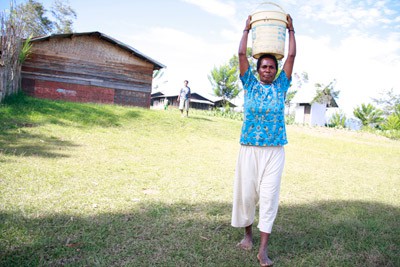
But the difficulties didn’t stop there; the water the Meagama people put so much effort into getting actually caused them harm.
What Difference Does the Child Survival Program Make in the Lives of Mothers and Babies?
Marisa is a member of a the Lawa tribe, a minority group with its own distinct dialect and tradition found only in certain isolated areas in northern Thailand. She lives in Laoop, a village located in a very high, remote area.
Even though Marisa finished grade nine, the quality of education she received at the school in her village was poor compared to the education she could have received at a school in the city.
As a member of a minority tribal group, Marisa’s options after school were limited. Most villagers in Laoop are educated only until grade six or nine, and after their brief education they usually find jobs and begin working. Marisa chose to work for a brief period, and when she turned 18 she married one of her neighbors and began her role as a housewife and a mother.
“Being pregnant made no difference to my work schedule. I still worked in the fields because I believed that it would strengthen my unborn child. I also ate the exact same meals I had before I was pregnant. My meals consisted of rice and boiled vegetable with spicy sauce. I did not eat anything special.
“After I got home from the hospital, I went to a health center nearby my village to attain information on how to raise my baby to be healthy and how to increase his weight. At the health center the nurse assistant briefly informed me on some basic guidelines, but she explained the information too quickly and I only understood a little of what she said.”
What Is It Like to Meet Your Sponsored Child for the First Time?
How would you describe meeting your sponsored child for the first time? Can you sum it up with one word?
If you can, please do. If you can’t, please use all the words you need.
Leading God’s Ministry of Light
Of the thousands of villages in Indonesia, nearly 20 percent remain dark, unreached by electricity. Though sources of energy such as rivers are plentiful and accessible, they remain untouched by technology and have not yet been tapped as electricity sources.
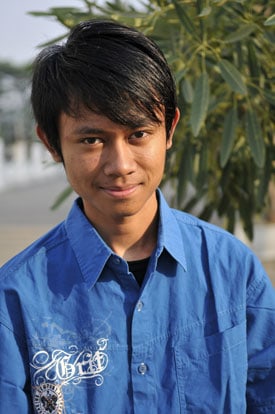 With a university major in electrical engineering, Ronny has a big dream to minister to the poor. He believes that providing electricity is one strategic way to help eradicate poverty in Indonesia.
With a university major in electrical engineering, Ronny has a big dream to minister to the poor. He believes that providing electricity is one strategic way to help eradicate poverty in Indonesia.
“I want to help the poor people in Papua villages by providing them hydro-energy technology. They have the resources everywhere; now they need the expertise, technology and people who are willing to go there.”
Ronny considers studying and learning more about hydro energy and other power sources a calling. He has a dream to develop more hydro potential in eastern Indonesia, an area known for its severe poverty, widespread undeveloped areas and lack of human resources.
“When I was going through my transition into the Leadership Development Program, I asked God ‘Why was I here? What was my purpose?’ Surely it wasn’t just to be in the best university in the country. There has to be more to this life than that.”
The Institute of Technology in Bandung (ITB) is among the best technical schools in Indonesia. Only the smartest students are able to enroll. Applicants have to pass a competitive national exam, and the school selects only the best candidates as students. Ronny is the first Leadership Development Program student to enroll in ITB.
Though Ronny’s campus graduates around 15 electrical engineers per year, this number is still low compared with the country’s need for more than 700 electrical engineers every year.
Ronny realizes his country is in an energy crisis. The electricity shortage in Java and Sumatra has confirmed the problem. He hopes he will take part in resolving the energy crisis in his country when he graduates.
“If I wish to change my country, I wish I could be a Minister of Technology and Innovation, who will make a decree and order every university and campus to open their doors for more innovation and research for technology. I would urge them to apply it accordingly to the undeveloped areas in Indonesia.”
Right now Ronny will focus on studying hard and equipping himself with the skills and knowledge needed for the future.
Ronny will graduate in two years. He will then embark on a journey to fulfill his dream of shedding light on Indonesia’s electricity crisis.
“The good part about being in the Leadership Development Program is being able to help people. The hard part is every day you have to keep your focus and realize that you are in constant spiritual battle because that is what God calls me to be in this world — to be God’s minister.”
Music as an Instrument to Release Children From Poverty
Music has long played an important part in Indonesian culture. The Indonesian jofa is one of the most common traditional instruments and it is used in every occasion or celebration.
In Watuliney, a small village in southeast Minahasa, Indonesia, most of the people love music. Those who are able to play the jofa also like to teach it to their children to perpetuate the musical tradition, but that opportunity does not come to all children. Most schools don’t provide a program for music. The parents who work as farmers can’t afford to buy the instruments for their children or to pay for the music course.
Because of his passion to preserve traditional culture, Adri, the coordinator of Silo Student Center, proposed to provide the jofa for children at the center. He believed that the children in his center had the talent and willingness to learn music.
After receiving a positive response from the church, Adri immediately checked the price of a jofa and ordered some made from a substitute material.
“We changed the material to plastic pipe. We call it jofa. Jofa is the basic instrument that has same tone as the original clarinet.”
The Children’s Mite
Children are the most ignored and vulnerable group in Bangladesh, and the children we serve there are some of the poorest in the world.
But these children, who live in circumstances we can’t imagine, are learning to see hope in their lives and how to help others.
When they heard about the Jan. 12 earthquake in Haiti and that Compassion-assisted children were affected, it broke their hearts. Every day they were at the development center, they prayed. But they went beyond that as well.


